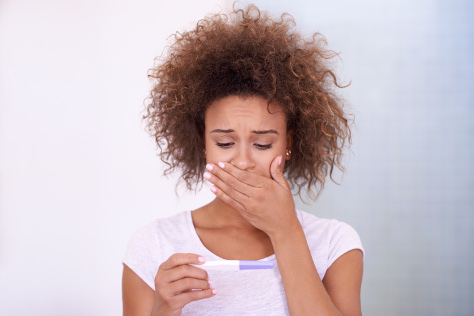False positive pregnancy test - Is it possible?
False positive pregnancy tests are rare but they do happen. Find out what can cause them and how can you avoid it happening

False positive tests - ie when the pregnancy test says you are pregnant when in fact you are not - are rare but they do happen especially if you do not follow the instructions to the letter.
Can a test say I'm pregnant when I'm not?
When you are pregnant, your body produces the hormone human chorionic gonadotrophin (hCG) and a home pregnancy test will detect this in your urine.
What else can lead to a false positive pregnancy test?
The most common cause of a false positive result is due to improper testing. Each pregnancy test company issues specific instructions and it is important to read these carefully. There is only a small window in which to read the results and if you don’t stick to this, you may get false positive. For example, some tests will show a faint positive line after the time has passed for interpreting the test.
Be wary of going back to ‘double check’ a test - ie digging it out of the rubbish bin - as a faint positive may also be indicated here because the time has lapsed. Always read home pregnancy tests at the instructed time and check to see that they are in date.
For the best results, avoid taking a test too early - ie in the days before a missed period; there are early tests available but they may not as reliable - and don’t drink too much fluid beforehand as this can dilute the level of hCG in your urine.
A false positive can occur if your body has not realised there is a viable pregnancy. The early stages of pregnancy may be detected leading to a positive pregnancy test however many do not progress beyond the first few weeks leading to a negative test at a later date. If you miscarry in the very early stages, this could also indicate a false positive because your body has not realised there is not a viable pregnancy.
You might also like to read:
A false positive can also occur if you have recently given birth as your hCG hormone levels are still high - and your body has not realised it is no longer pregnant.
There are certain medications that can interfere with your hCG levels and lead to a false positive result. For example, women who are taking fertility drugs can show a spike in hCG levels which can interfere with a test because they show excessive amounts of protein in the urine.
What should I do if I am taking medication that might effect my pregnancy test?
Ask your GP which are the best tests to use if you are on any of these medications - or better still, get your pregnancy testing done by the doctor as a blood test is more accurate.